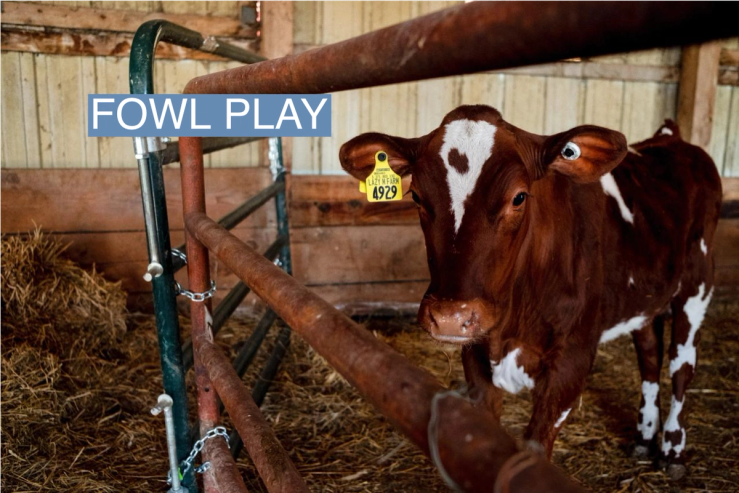The News
Health officials in the US are monitoring the spread of bird flu — the H5N1 virus — in dairy cows, particularly as traces of the virus have been found in supermarket milk.
On Wednesday, scientists revealed several cats had died on a Texas farm where cows have the virus, seemingly after drinking raw milk.
There are now two potential vaccines designed to curb the disease if it starts moving through people, health officials said Wednesday.
At least 36 cow herds across nine states have tested positive for bird flu, according to the most recent data. And at least two dairy farm employees have been infected with the virus. While there is no evidence there has been human-to-human transmission of the virus, if the virus mutates — much like the novel coronavirus did — that could change fast, especially if more animals with close human contact get the virus.
The federal government could produce and ship more than 100 million doses of the two vaccines within three to four months if needed, authorities said, but the Food and Drug Administration would also need to approve them first.
The outbreak has been quietly gathering steam worldwide for the last year in animals and birds. While the US is more prepared for any future pandemic than they were before COVID-19, various factors — including misinformation and a potential Trump presidency — have experts worried.
SIGNALS
There are still unknowns about the vaccines’ effectiveness
The vaccines’ effectiveness on this strain of bird flu isn’t completely clear. Experts are optimistic the results would be similar to past H5N1 cases, but a lack of human cases means there’s also a lack of data to fully support this, researchers told NBC News. There is also a question about prioritization, as it is unclear who is most at risk of severe infection from bird flu. Typically, H5N1 doesn’t spread in humans easily, and farm workers may be most at risk. But the virus has a high mortality rate — about 50%. Health authorities are also worried about vaccine skepticism and uptake. “It’s very disheartening to see so much vaccine skepticism and vaccine fatigue,” said one infectious disease doctor.
Healthcare hurdles, misinformation complicate contact tracing
Although H5N1 doesn’t typically jump from person to person with the same virality as COVID-19 or measles, for example, a mutation could change that. Ranch operators have reported several instances of workers falling sick with flu-like symptoms, and at least two people have tested positive for H5N1, according to Scientific American. Health experts warn that contact tracing will be difficult, because many people who work with cows in the US are “mobile, uninsured, and undocumented,” wrote The Atlantic’s Kathern J. Wu. In turn, many may not actively seek out treatment. Fears over the economic consequences of an outbreak are also making farmers hesitant to test employees: unlike poultry farmers, dairy farmers are not compensated for production losses related to culling herds or loss of manpower, NPR reported.
Trump says he would close pandemic preparedness office
While the anxieties over bird flu spread in the US rises among public health officials, former President Donald Trump told TIME Magazine that he would shut down the Office of Pandemic Preparedness and Response Policy. The public-health body opened last year after Congress passed a bipartisan bill in support of its creation. The office has been crucial for coordinating efforts to contain bird flu, but Trump said that it is too expensive and that he would only create such an agency if a widespread virus emerges. The office is “a way of giving out pork,” Trump told TIME. Many are already warning that a lack of preparation could see the nation return to a pre-COVID-19 state of vulnerability.



